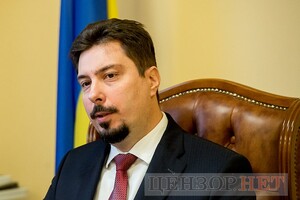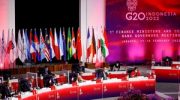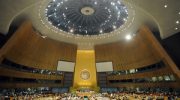First of all, because of the elimination of priorities in people.

During the war the courts considered 418 thousands of cases , but in the last month and a half, the number of cases received by courts across Ukraine is only ten percent of pre-war figures, Supreme Court Chairman Vsevolod Knyazev told ZN.UA.
In other words, the judiciary is unlikely to reach pre-war productivity in the near future.
“If a person needs to go to court, he will do it. Receipt of correspondence by mail did not stop for a day. The lawsuits are accepted, distributed and considered as much as possible, taking into account the safety of all participants in the trial, “he said.
Knyazev noted that most Ukrainian courts are in a relatively calm situation, their activities are not paused for a day. But even in these courts, the number of cases decreased by 80-90 percent.
“I do not agree with Mr. Smirnov (profile deputy head of the OPU), who hinted that the judicial system is somehow not working. The reason is that there is a war. The focus of people's attention is shifted to another. There is no desire to argue on some minor issues related to global affairs and issues where the law is violated, then people are still going to court. Other issues remain “after the war,” he said.
There are currently three groups of courts:
- Occupying courts, where justice cannot be administered in any form, and their cases have been transferred to other courts
- courts located in areas where active hostilities are taking place – the situation depends on the circumstances, and operational decisions to suspend the courts are made by meetings of judges or territorial units of the State Judicial Administration
- courts in the rear, whose activities, in fact , has not changed.
“There is a proactive map on the website of the Armed Forces, where the types of territories are indicated. I hope that information about the launch of courts in the liberated regions of the Armed Forces will be displayed there soon, “Knyazev added.
Ukraine's judiciary entered the war at the height of the reset of the main judiciary. Today, all VKKS and VSP reform processes are frozen. Some of the powers that are not specified in the Constitution have been transferred to the President of the Supreme Court.
How did the judicial system reformat during the war? What are the mechanisms for identifying collaborating judges and what to do with them next? Why is the UASK still working, where Yanukovych's lawsuit lies, and what is the threat to our statehood? Why is e-court needed right now and who is responsible for its implementation? What can the critical underfunding of the Cabinet of Ministers mean for the judiciary? Read about this and much more in an interview with Inna Vedernikova with Supreme Court Chief Vsevolod Knyazev: “I am ashamed of the decision of GRP members who resigned two days before the war”
< span class = "sptm_title"> See the special topic: “Going out is a very demotivating signal for citizens” – Chief Justice Each court found a difficult balance between the professional duty and the protection of judges' lives. The Armed Forces of Ukraine in Luhansk region destroyed an enemy warehouse with ammunition – the head of OVA Serhiy Haidai also said that the occupiers were spreading fake information that the Ukrainian military had fired on the housing sector. Mass burial near Kyiv: new evidence of occupiers' atrocities found in liberated territories A burnt car stands near the mass grave. One of the passengers lost half of her head. Schedule of additional evacuation flights for April 11 – Ukrzaliznytsia Residents of some settlements in Luhansk and Donetsk regions have the opportunity to leave the war zones. Delayed mines and parachute bombs are found in Kharkiv region In particular, delayed detonation shells are found in the Dergachiv community.


